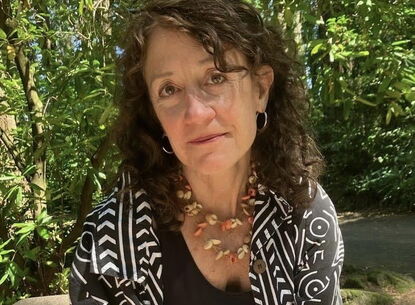
Julius Eastman: The Holy Presence
about the artists
Wild Up is an LA-based orchestra collective that uplifts people and projects leading the way for music-making today. Called “a raucous, grungy, irresistibly exuberant…fun-loving, exceptionally virtuosic family” (New York Times), Wild Up has been lauded as one of music’s most exciting groups by virtually every significant institution and critic within earshot. Artistic Director Christopher Rountree started the group in 2010 to eschew outdated ensemble and concert traditions by experimenting with different methodologies, approaches, and contexts. Their critically acclaimed, two-time GRAMMY-nominated Julius Eastman recording anthology has been celebrated as “a masterpiece” (New York Times), “instantly recognizable” (Vogue), and “singularly jubilant..a bit in your face, sometimes capricious, and always surprising” (NPR).
GRAMMY®-nominated cellist Seth Parker Woods has established his reputation as a versatile artist and innovator, reimagining traditional works and commissioning new ones to propel classical music into the future. As The New York Times wrote, “Woods is an artist rooted in classical music, but whose cello is a vehicle that takes him, and his concertgoers, on wide-ranging journeys.”
He has collaborated with a wide range of artists representing the classical, popular music, and visual art worlds and has been nominated for three GRAMMY® Awards, in 2023 and 2025 as a member of celebrated new music ensemble Wild Up, and again in 2024 for his autobiographical solo tour-de-force, Difficult Grace (Cedille 2023).
Woods was appointed to the Robert Mann Chair in Strings and Chamber Music in 2024 and serves on the artist faculty of the Music Academy of the West each summer. He holds degrees from Brooklyn College, Musik Akademie der Stadt Basel, and a PhD from the University of Huddersfield.
There are two enduring principles that are the reasons that Dwight Trible claims are the reasons for his ability to stay in demand and relevant over his 40 year career, stay humble and hungry.
He understands that you must never be satisfied with what you have already accomplished, one must always stay thirsty to learn as much as possible about the craft of music and have the humility to recognize the lessons when they show up.
Over the decades, Trible has had the good fortune to work with everyone from L.A. Reid to Harry Belafonte. He credits Horace Tapscott, Billy, Higgins, and Pharaoh Sanders as key influences to the foundation of his expanded musical consciousness.
Trible remains an integral part of the fabric of the ever-thriving Los Angeles music scene and is known as the father of progressive vocal expression. Dwight has been the Executive Artistic Director of the iconic World Stage Performance Gallery in Leimert Park since 2013. He has 11 recordings under his own name and numerous credits as a sideman with many other notable artists.
Julius Eastman (1940–1990) was a composer, conductor, singer, pianist, and choreographer. A singular figure in New York City’s downtown scene of the 1970s and ’80s, he performed at Lincoln Center with Pierre Boulez and the New York Philharmonic and recorded music by Arthur Russell, Morton Feldman, Peter Maxwell Davies, and Meredith Monk. “What I am trying to achieve is to be what I am to the fullest,” he said in 1976. “Black to the fullest, a musician to the fullest, a homosexual to the fullest.”
Eastman was young, gay, and Black at a time when it was even more difficult to be young, gay, and Black. He swerved through academia, discos, Europe, Carnegie Hall, and the downtown experimental music scene. And in 1990, at age 49, Eastman died in Buffalo, New York, less than a decade after the New York City Sheriff’s Department threw most of his scores, belongings, and ephemera into the East Village snow.
Eastman’s music shines like a retroactive beacon to today’s musical creators. Any term used to characterize today’s musical landscape—“genre-fluid” or the like—was anticipated by Eastman decades before. Yet he was punished for being ahead of his time, both in the treatment of his music and, tragically, his person. Eastman’s music flowed freely from—and through—his myriad influences and was terribly served by the musical infrastructure of his day. In our unique approaches to Eastman’s work, we’re pushing ourselves to work in dialogue with the composer’s creative impulses, channeling his individualistic spirit, augmenting the pieces with our ideas and concepts, and trying to stay true.






